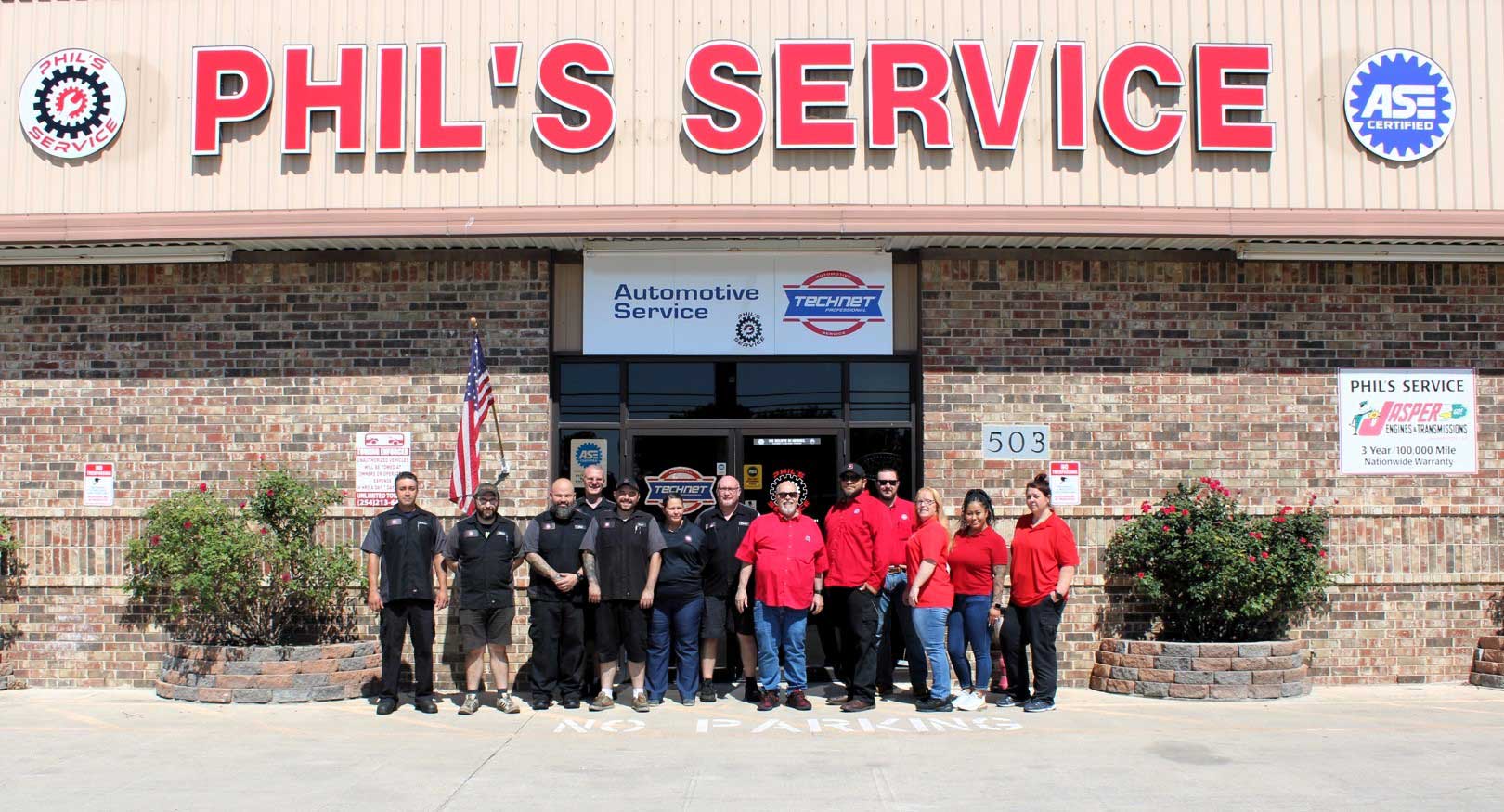The Future of The Internal Combustion Engine Design
As more electric cars are manufactured, the future of the internal combustion engine design hangs in the balance. Most American cars run on gasoline, but with the ever-increasing demand to respond to the climate crisis, the combustion engine might soon become a thing of the past.
While it's still unclear to what exactly will become of the traditional car engine, there's a lot to think about as the future unfolds. As of right now, at least nine countries from around the world are planning to phase out gasoline by the year 2035—including the US.
Keep reading to learn everything you need to know so far about what the future holds for the internal combustion engine design.
The Future of Internal Combustion Engine Design
Your typical car engine takes in gasoline through the fuel line and your pistons compress that gasoline with a certain amount of air. This compression causes a spark that turns the crankshaft, dispersing Carbon Dioxide while moving your car forward. Of course, a bit more goes on within your car's engine, but you get the picture.
The point is, the term combustion has to do with the process of burning something. In the case of your traditional internal combustion engine design, you're burning fossil fuels which clearly have an unwanted effect on our environment.
Over the years, gasoline engines have undergone their fair share of tweaking. This would include things like fuel injectors and turbocharged engines. However, new CO2 limitations in Europe and new fuel economy standards in the United States are pushing manufacturers to slash emissions in half by 2030.
No matter how much "clean-burning fuel" is produced, there will always be a footprint left behind due to the burning process. This could mean the end of the internal combustion end as we know it. Or, at least fossil fuels.
Will Electric Cars Take Over?
Automakers have been facing economic and environmental pressure to manufacture battery-powers cars. More and more electric and hybrid cars enter the market each year. The goal is to make a complete switch to electric cars. However, this switch will be an extreme financial commitment.
A $90 billion financial commitment to be exact.
On the positive side, electric motors are much more simple to build, easier to maintain, and they last quite a long time. Keeping them charge is less of an expense than paying for gas weekly as well. This proves to be advantageous as gas prices continue to rise.
On the other hand, electric cars are typically more expensive to buy than gasoline-powered cars. It's also quicker to fill up the tank, not to mention, there are ten times as many gas stations across the nation as there are charging stations.
However, experts predict that battery-powered cars will outsell conventional ones by the year 2030. They also predict that batteries will become cheaper to manufacture and charge quicker. Charging stations will also become widely available.
Another advantage of the electric vehicle is that it's much more reliable on the road. The drivetrain alone in a typical combustion engine vehicle contains more than 2,000 moving parts. The electric vehicles only contain about 20. So, in terms of car engine repair, electric vehicles are far less expensive—and less complicated—to fix.
It's also important to take into consideration that with newer and improved internal combustion engine design, the shelf life of a traditional car engine will exceed a minimum of 15 years. This means that cars manufactured and released towards the middle to end of the 2020 decade will still be around on the sales lots well into the 2040s.
Batteries May Not Be the Only Future
While lithium batteries far surpass gasoline, there's still the issue with mining for lithium and battery creation. This tends to be an environmental upset as well. Over the past decade, we've been seeing concept cars emerging, powered by the hydrogen fuel cell.
Hydrogen fuel cells produce zero emissions as they run on compressed hydrogen cells. These hydrogen fuel cells can work in synchronicity with electric motors for a clean, emission-free, and extremely quiet ride.
Fuel cells operate much like the rechargeable battery. They both transform chemical energy from a certain substance into electricity. This is accomplished by electrolysis. The difference between the two is in the storage of the fuel
A battery converts a finite amount of the chemical substance stored internally into electricity—hence the need to recharge. A fuel cell, on the other hand, converts the chemical substance stored externally into electricity. This chemical substance, or compound, is, in fact, hydrogen, which is stored in the hydrogen storage tank.
The only current downside to the hydrogen fuel cell-powered vehicles is the expense. It's very difficult to extract pure hydrogen from water on a large scale. This is because the extraction method is carried out through electrolysis. It also has to do with the physical storage of loose hydrogen gas atoms—in a usable form.
If new breakthroughs emerge with this concept in terms of cheaper electrolysis and storage technology, hydrogen fuel cells may just become the new under the hood standard.
Is it Time to Say Goodbye?
Some believe that the internal combustion engine design will never go away. There will always be classic car enthusiasts and those who become nostalgic about the past. Of course, with gas prices on the rise and the potential phasing-out of fossil fuels, the future of the traditional car engine remains uncertain.
Whether you drive a gas-powered, electric, or hybrid vehicle, if you're in need of a repair, we've got you covered. Contact us to schedule a service or repair appointment today.
As technology changes many wonders about the effect it has on internal combustion engine design. Here is everything you need to know about its future.
As more electric cars are manufactured, the future of the internal combustion engine design hangs in the balance. Most American cars run on gasoline, but with the ever-increasing demand to respond to the climate crisis, the combustion engine might soon become a thing of the past.
While it's still unclear to what exactly will become of the traditional car engine, there's a lot to think about as the future unfolds. As of right now, at least nine countries from around the world are planning to phase out gasoline by the year 2035—including the US.
Keep reading to learn everything you need to know so far about what the future holds for the internal combustion engine design.
The Future of Internal Combustion Engine Design
Your typical car engine takes in gasoline through the fuel line and your pistons compress that gasoline with a certain amount of air. This compression causes a spark that turns the crankshaft, dispersing Carbon Dioxide while moving your car forward. Of course, a bit more goes on within your car's engine, but you get the picture.
The point is, the term combustion has to do with the process of burning something. In the case of your traditional internal combustion engine design, you're burning fossil fuels which clearly have an unwanted effect on our environment.
Over the years, gasoline engines have undergone their fair share of tweaking. This would include things like fuel injectors and turbocharged engines. However, new CO2 limitations in Europe and new fuel economy standards in the United States are pushing manufacturers to slash emissions in half by 2030.
No matter how much "clean-burning fuel" is produced, there will always be a footprint left behind due to the burning process. This could mean the end of the internal combustion end as we know it. Or, at least fossil fuels.
Will Electric Cars Take Over?
Automakers have been facing economic and environmental pressure to manufacture battery-powers cars. More and more electric and hybrid cars enter the market each year. The goal is to make a complete switch to electric cars. However, this switch will be an extreme financial commitment.
A $90 billion financial commitment to be exact.
On the positive side, electric motors are much more simple to build, easier to maintain, and they last quite a long time. Keeping them charge is less of an expense than paying for gas weekly as well. This proves to be advantageous as gas prices continue to rise.
On the other hand, electric cars are typically more expensive to buy than gasoline-powered cars. It's also quicker to fill up the tank, not to mention, there are ten times as many gas stations across the nation as there are charging stations.
However, experts predict that battery-powered cars will outsell conventional ones by the year 2030. They also predict that batteries will become cheaper to manufacture and charge quicker. Charging stations will also become widely available.
Another advantage of the electric vehicle is that it's much more reliable on the road. The drivetrain alone in a typical combustion engine vehicle contains more than 2,000 moving parts. The electric vehicles only contain about 20. So, in terms of car engine repair, electric vehicles are far less expensive—and less complicated—to fix.
It's also important to take into consideration that with newer and improved internal combustion engine design, the shelf life of a traditional car engine will exceed a minimum of 15 years. This means that cars manufactured and released towards the middle to end of the 2020 decade will still be around on the sales lots well into the 2040s.
Batteries May Not Be the Only Future
While lithium batteries far surpass gasoline, there's still the issue with mining for lithium and battery creation. This tends to be an environmental upset as well. Over the past decade, we've been seeing concept cars emerging, powered by the hydrogen fuel cell.
Hydrogen fuel cells produce zero emissions as they run on compressed hydrogen cells. These hydrogen fuel cells can work in synchronicity with electric motors for a clean, emission-free, and extremely quiet ride.
Fuel cells operate much like the rechargeable battery. They both transform chemical energy from a certain substance into electricity. This is accomplished by electrolysis. The difference between the two is in the storage of the fuel
A battery converts a finite amount of the chemical substance stored internally into electricity—hence the need to recharge. A fuel cell, on the other hand, converts the chemical substance stored externally into electricity. This chemical substance, or compound, is, in fact, hydrogen, which is stored in the hydrogen storage tank.
The only current downside to the hydrogen fuel cell-powered vehicles is the expense. It's very difficult to extract pure hydrogen from water on a large scale. This is because the extraction method is carried out through electrolysis. It also has to do with the physical storage of loose hydrogen gas atoms—in a usable form.
If new breakthroughs emerge with this concept in terms of cheaper electrolysis and storage technology, hydrogen fuel cells may just become the new under the hood standard.
Is it Time to Say Goodbye?
Some believe that the internal combustion engine design will never go away. There will always be classic car enthusiasts and those who become nostalgic about the past. Of course, with gas prices on the rise and the potential phasing-out of fossil fuels, the future of the traditional car engine remains uncertain.
Whether you drive a gas-powered, electric, or hybrid vehicle, if you're in need of a repair, we've got you covered. Contact us to schedule a service or repair appointment today.


